Surakarta, MINA – The Central Java Provincial Government continues to expand international cooperation in its efforts to strengthen environmentally based food security.
This time, the provincial government has partnered with 12 European Union countries to promote low-carbon rice production in the region.
Central Java Governor Ahmad Luthfi expressed his commitment during an official visit by the European Union Ambassador to Indonesia, Denis Chaibi, along with delegates from 12 EU member states at the Tawangarum Hall, Surakarta City Hall on Monday.
“Today we are following up on the relationship that has already been established. In the future, this cooperation will be enhanced, especially in the low-carbon food sector,” said. Ahmad Luthfi.
Also Read: Imam Yakhsyallah Highlights Ummah Unity as the Core Path to the Liberation of Al-Aqsa
The 12 countries present included Austria, Cyprus, Germany, the Netherlands, Spain, Sweden, Belgium, Denmark, Finland, Lithuania, and Poland.
The Governor explained that the rice planting area in Central Java in 2024 reached 1.5 million hectares, with a production of 8.8 million tons of dry milled unhusked rice, contributing 16.73% to the national food stock. In 2025, the rice production target is set to increase to 11.8 million tons.
Since 2022, the low-carbon rice program has been implemented in several regions such as Boyolali, Klaten, and Sragen, through the SWITCH-Asia Low Carbon Rice program. This program connects farmers with small-scale rice mills and consumer markets such as restaurants and hotels.
In Klaten, the program successfully harvested 100 hectares of rice fields with a production potential of 600 tons of unhusked rice, reducing carbon emissions by up to 80%, cutting milling costs by 30–40%, and improving the quality of the harvest.
Also Read: Prof. El-Awaisi Urges Participants to Continue Spreading Baitul Maqdis Culture
Head of the Central Java Food Security Agency, Dyah Lukisari, added that the expansion of the low-carbon rice program also involves corporate social responsibility (CSR) from companies, one of which is from Bank Indonesia.
Currently, CSR interventions are being carried out in six regencies/cities: Demak, Jepara, Kudus, Semarang City, Semarang Regency, and Boyolali.
The investment for converting rice milling machines from diesel to electric power reaches IDR 250–300 million per unit. Bank Indonesia’s CSR in the six locations amounts to a total of IDR 1.8 billion.
Interestingly, in the future, Governor Ahmad Luthfi has instructed that milling machines should no longer use electricity based on fossil energy, but instead switch to solar power.
Also Read: Thousands Arrive for “1,000 Volunteers for Gaza Reconstruction” Assembly in Jakarta
“One or two pilot projects of solar-powered milling machines will be tested; we are still discussing the technical aspects,” said Dyah.
The European Union Ambassador to Indonesia, Denis Chaibi, expressed his appreciation for the warm welcome from Governor Ahmad Luthfi and the Mayor of Surakarta. He said that the visit to Central Java aimed to study food security practices considered successful.
“We want to learn from the people of Indonesia, especially Central Java, as one of the largest food barns in Indonesia and in the world,” said Denis.
This visit also serves as a momentum to strengthen joint commitment in facing the challenges of global climate change through sustainable agricultural innovation. [Nia]
Also Read: KH Anwar Iskandar Re-Elected as Chairman of Indonesia’s Ulema Council for 2025–2030
Mi’raj News Agency (MINA)






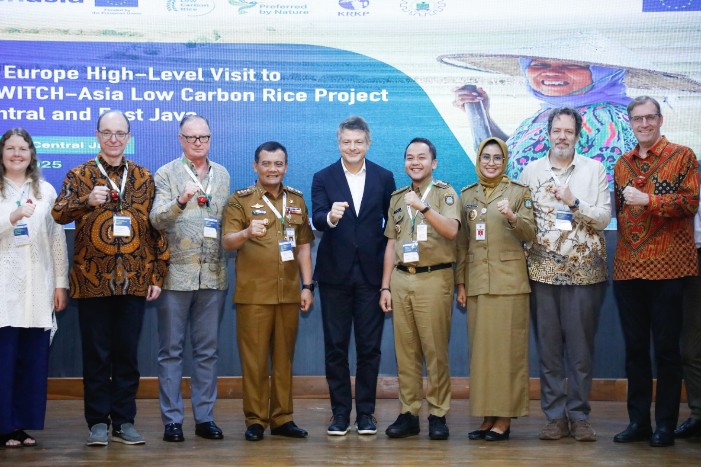



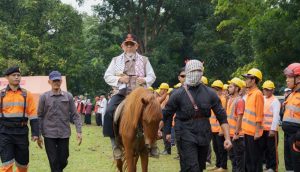

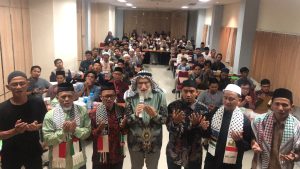
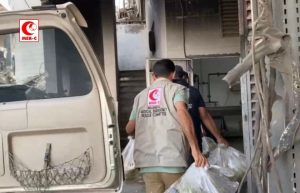


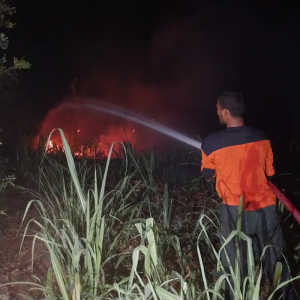
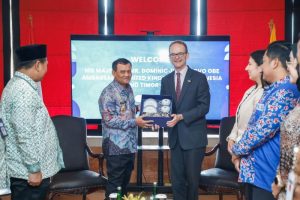
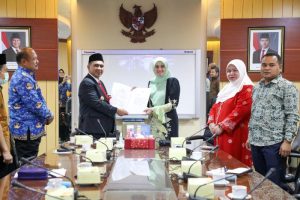
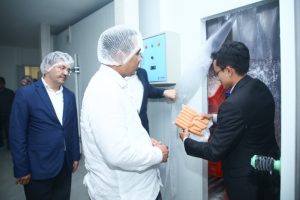
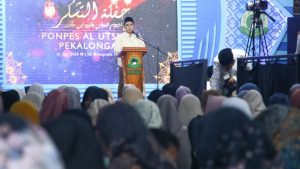
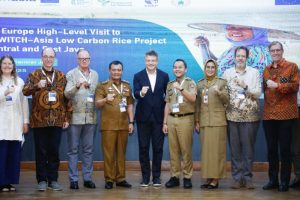













 Mina Indonesia
Mina Indonesia Mina Arabic
Mina Arabic